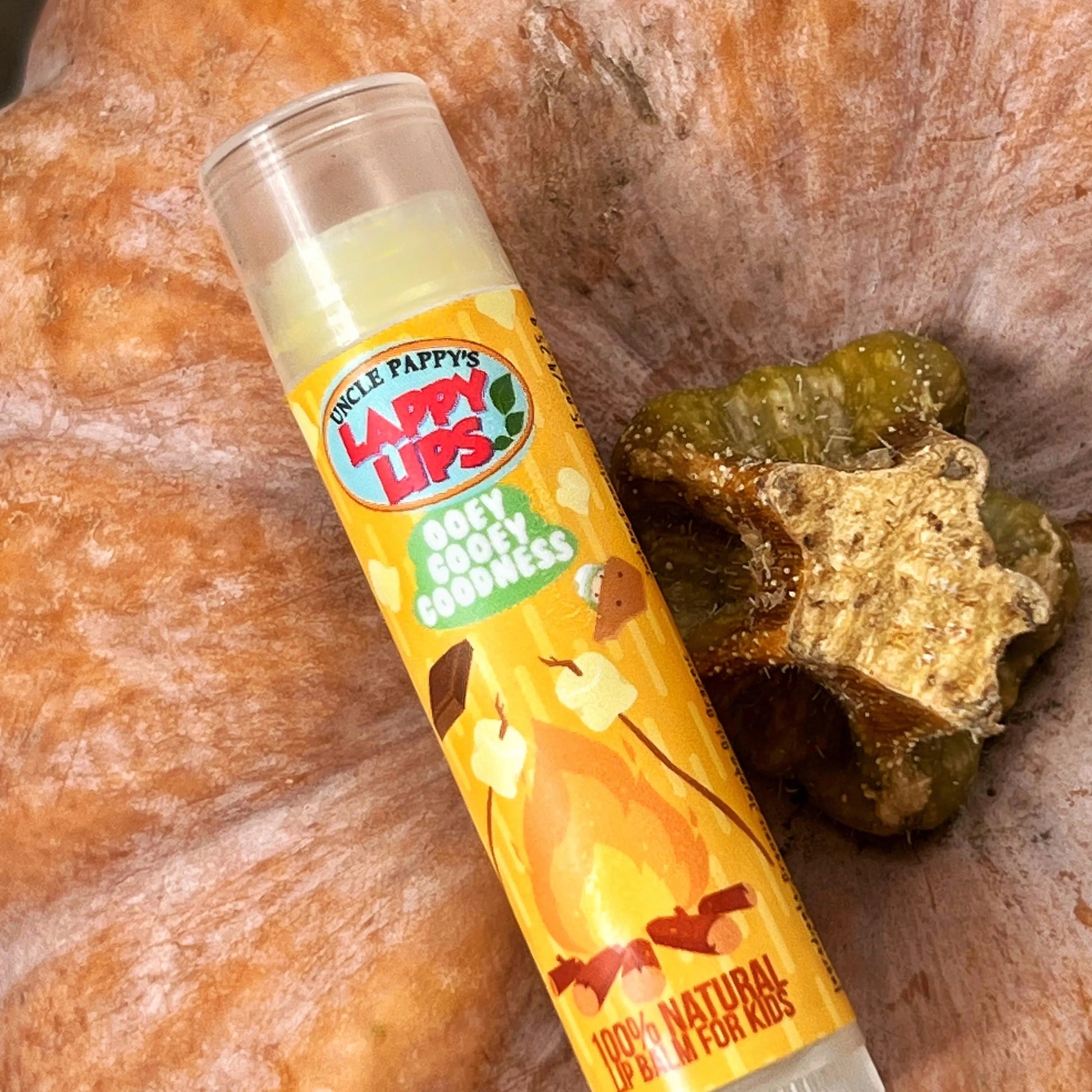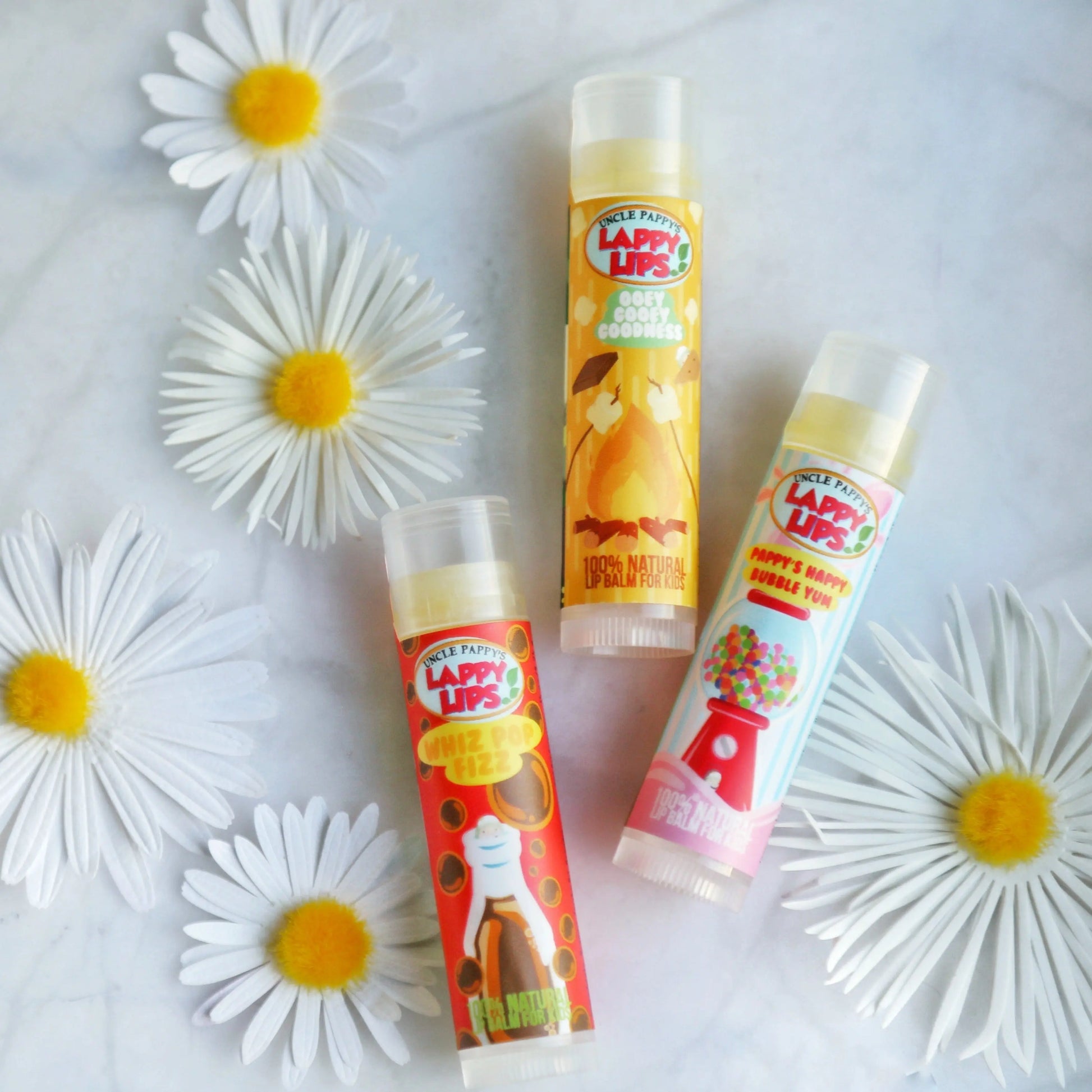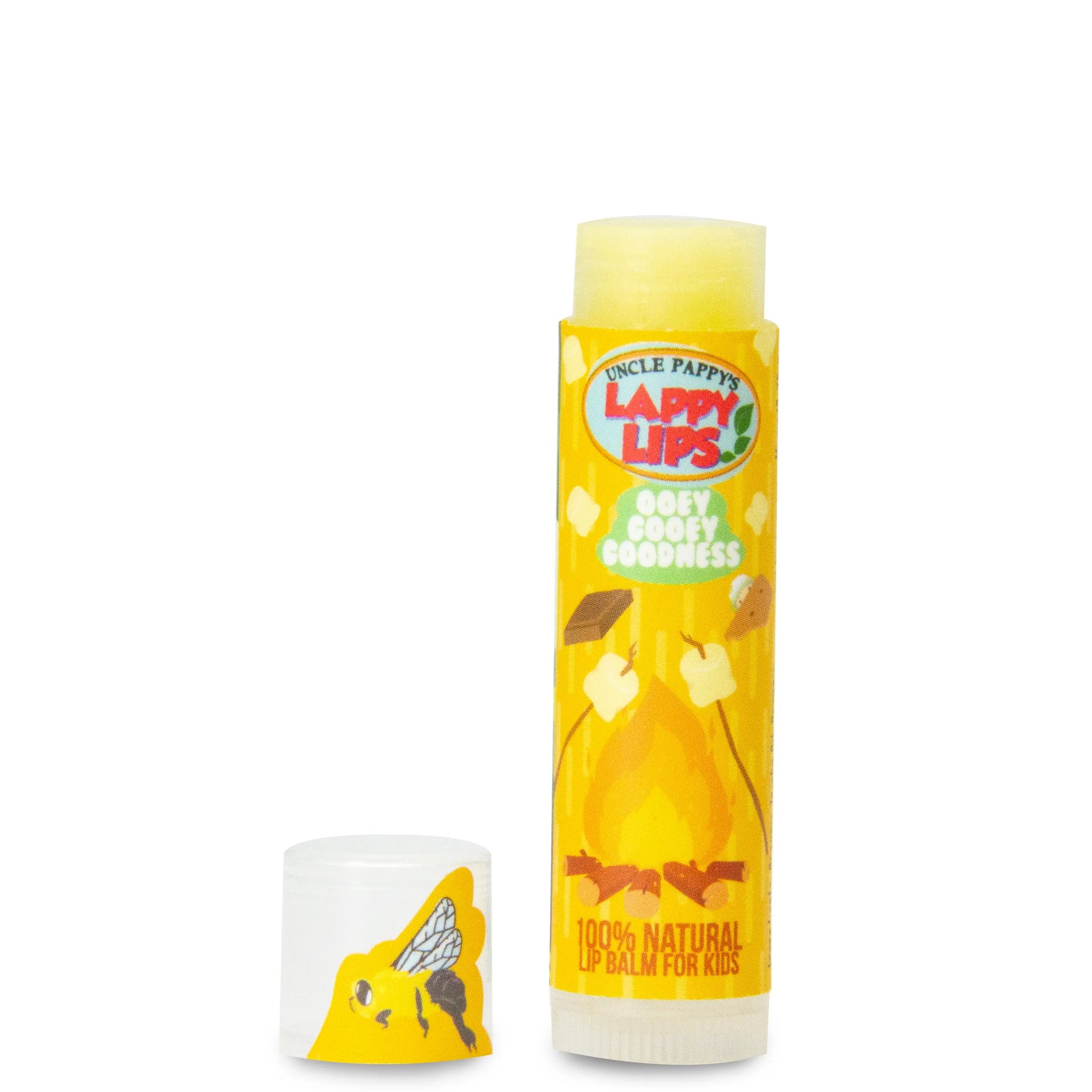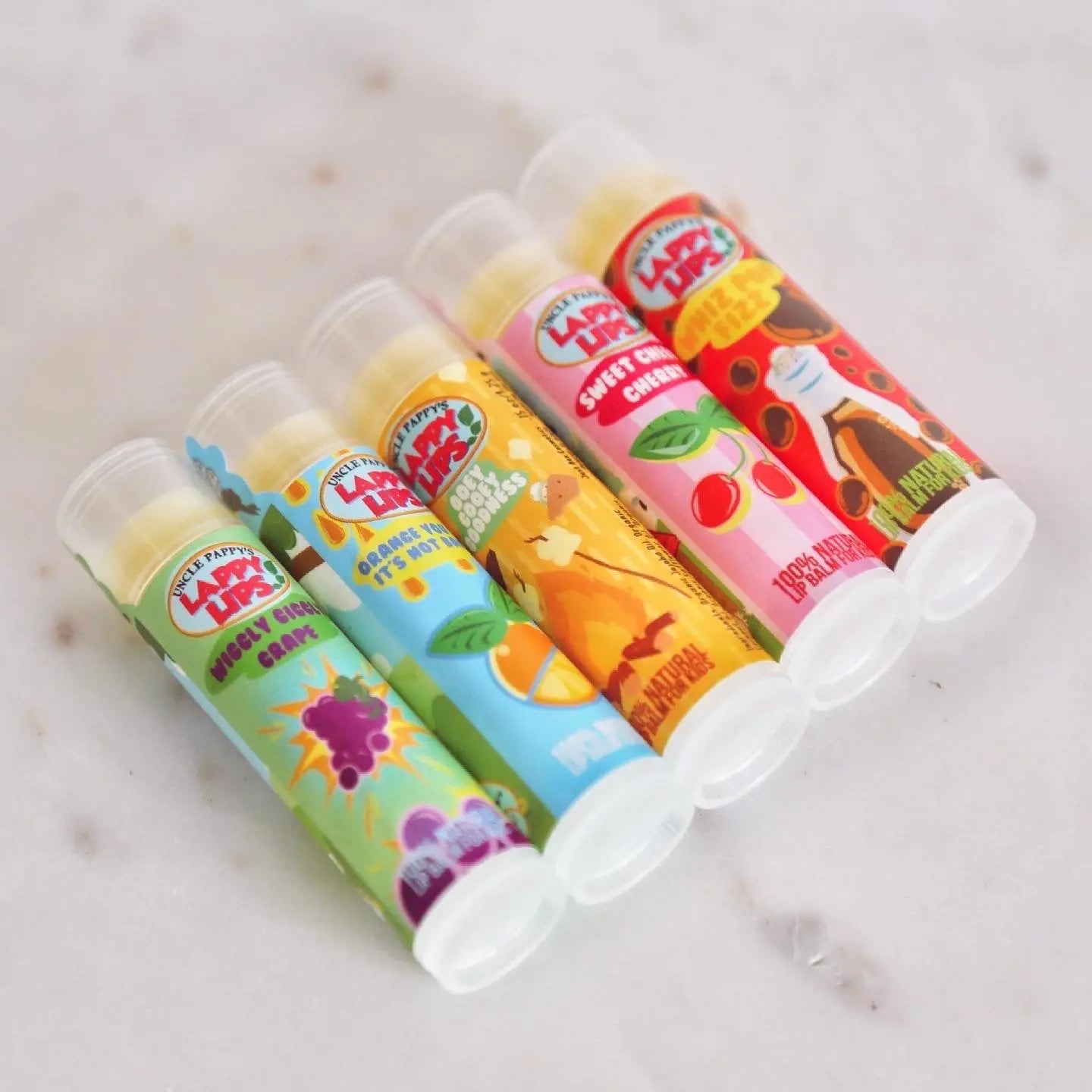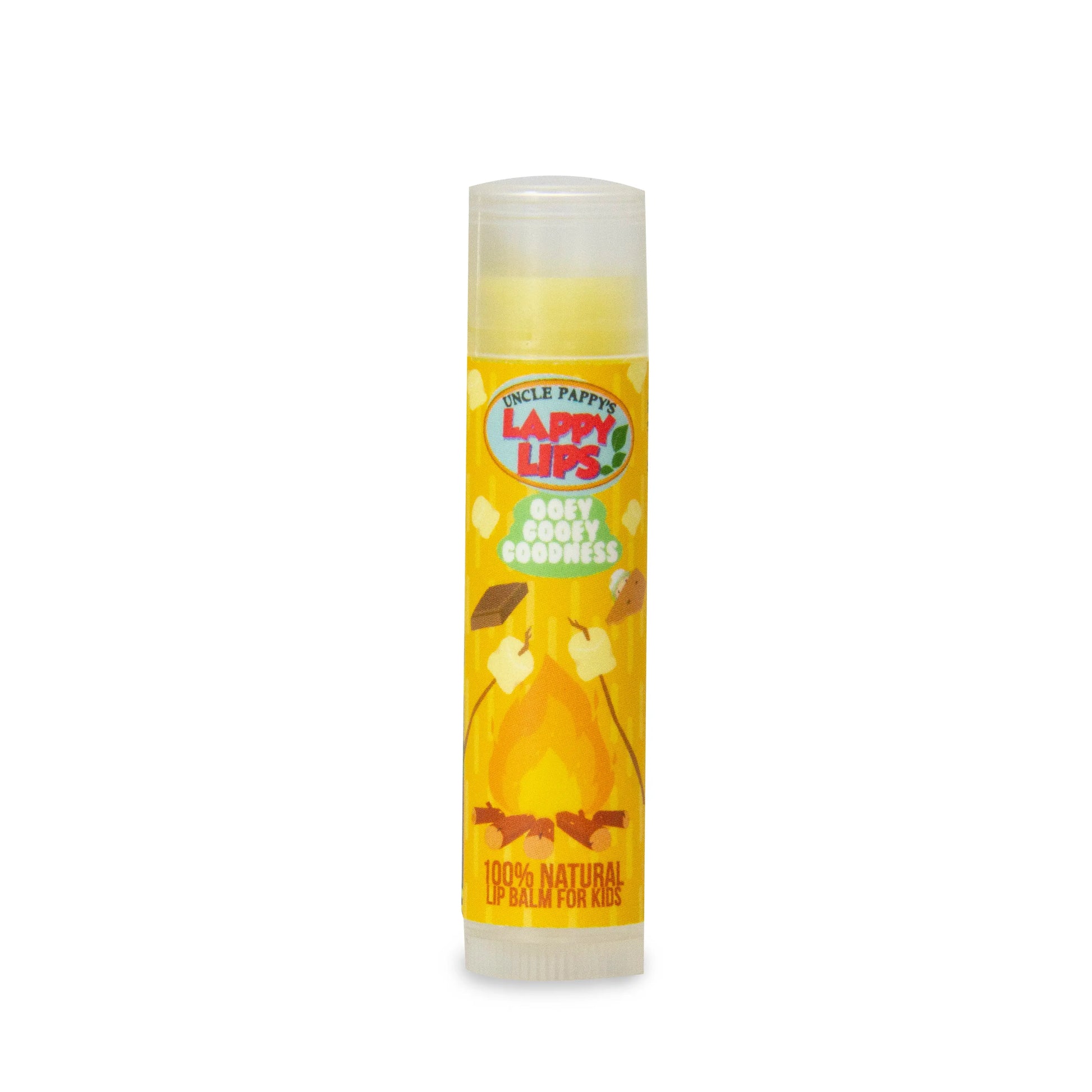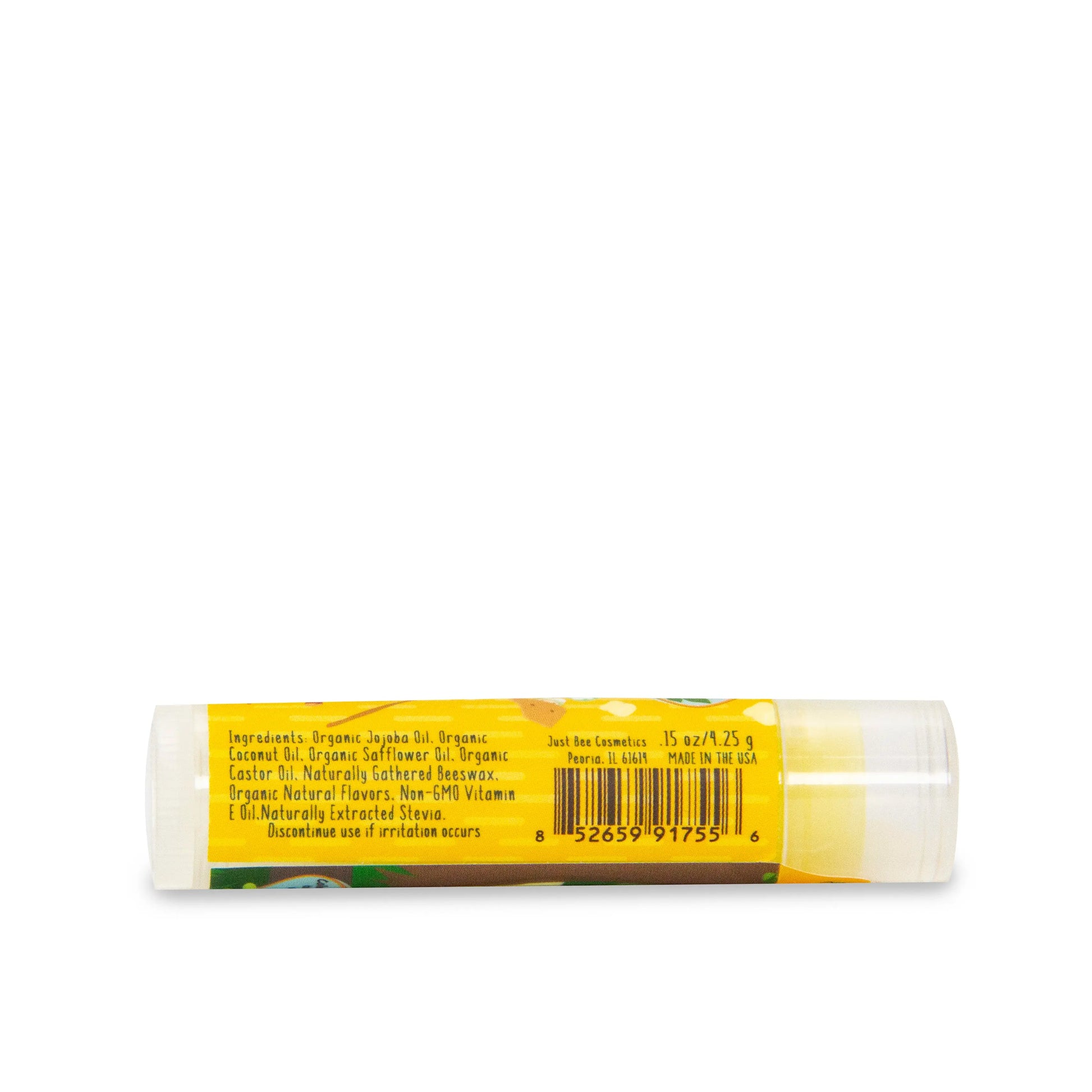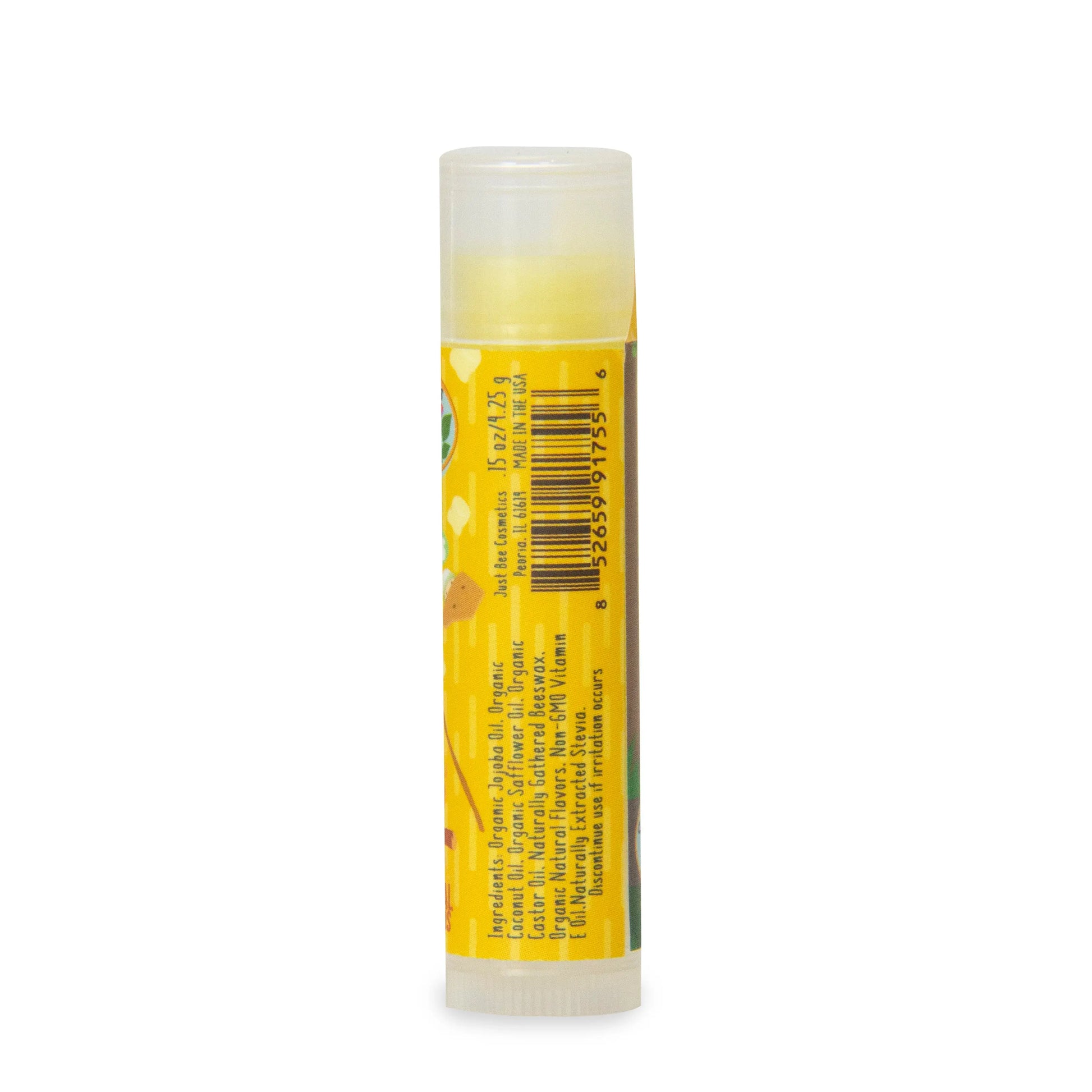Lappy Lips
Ooey Gooey Goodness - Lappy Lips
Ooey Gooey Goodness - Lappy Lips
Couldn't load pickup availability
Ooey Gooey Goodness features the yummy flavors of vanilla, caramel, and marshmallow! You'll picture s'mores next to a campfire when you uncap the lid and apply to your lips. A subtle flavor and compelling scent that are 100% guilt free!
Uncle Pappy's Lappy Lips is 100% Natural lip balm made with kids in mind. Naturally gathered beeswax blends with natural organic flavors to create the best lip balm for kids. Kids love the great flavors and smooth texture, and parents can feel great giving their kids a natural alternative to petroleum-based brands.
Ingredients: Organic Jojoba Oil, Organic Coconut Oil, Organic Safflower Oil, Organic Castor Oil, Naturally Gathered Beeswax, Organic Natural Flavors, Non-GMO Vitamin E Oil, Naturally Extracted Stevia.
Share
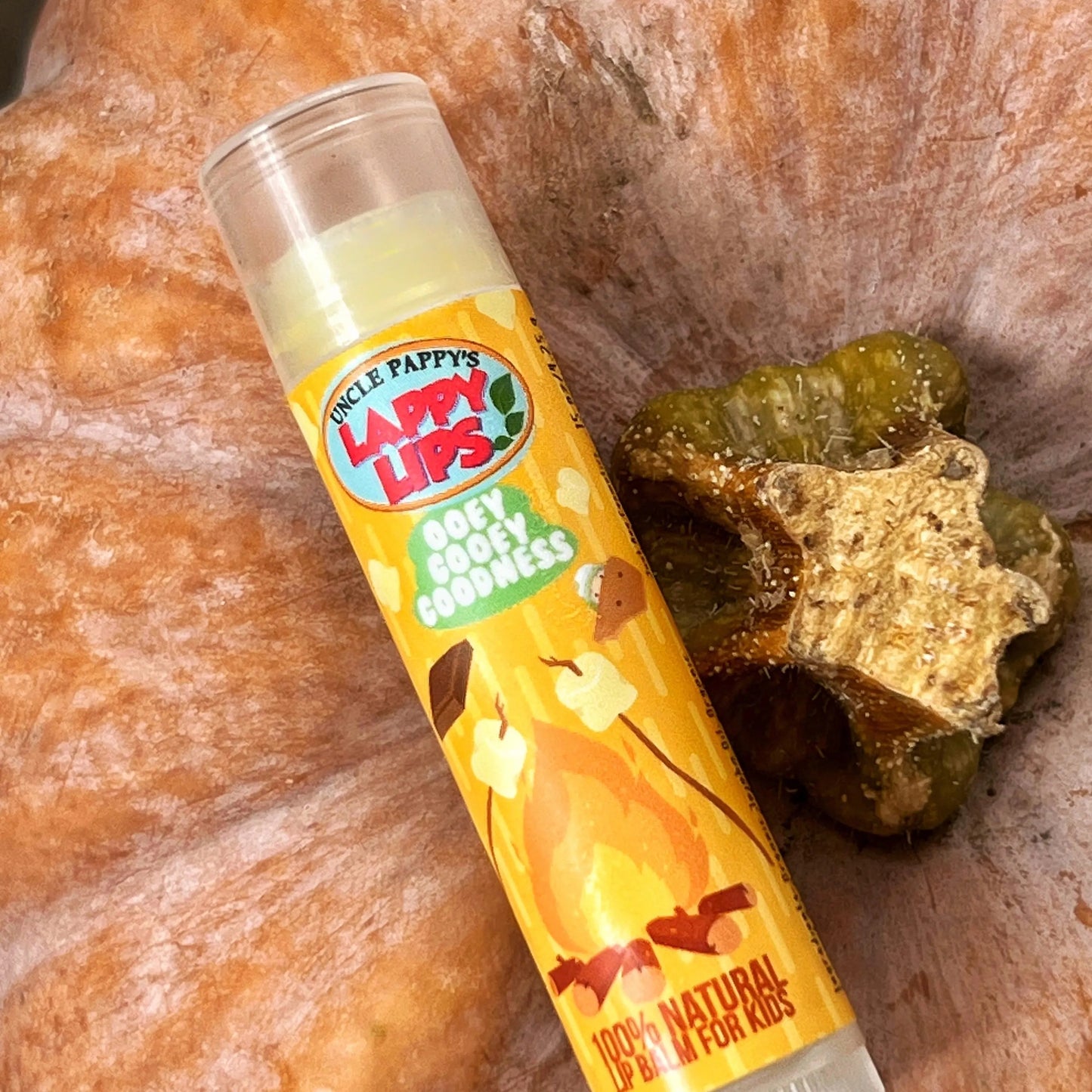
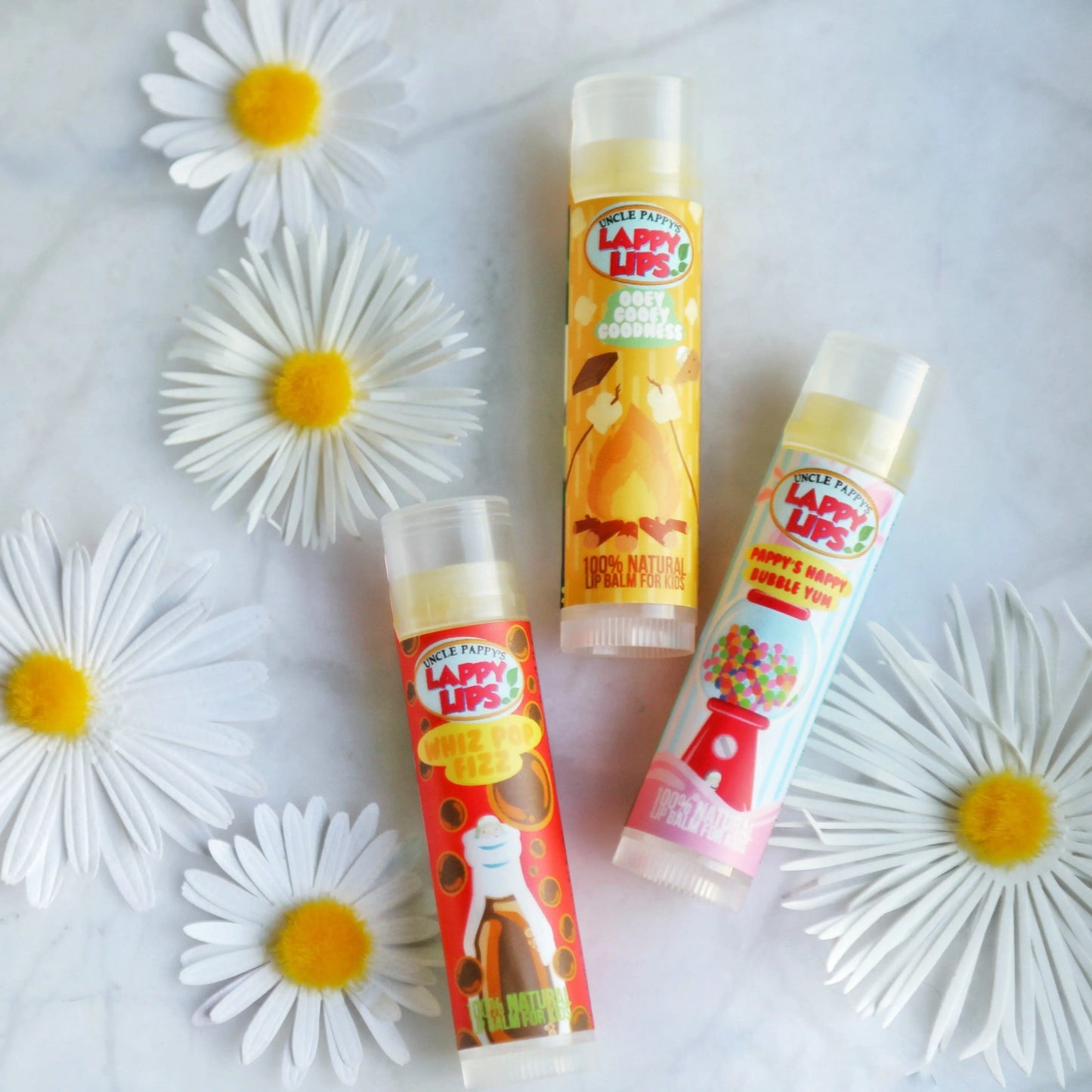
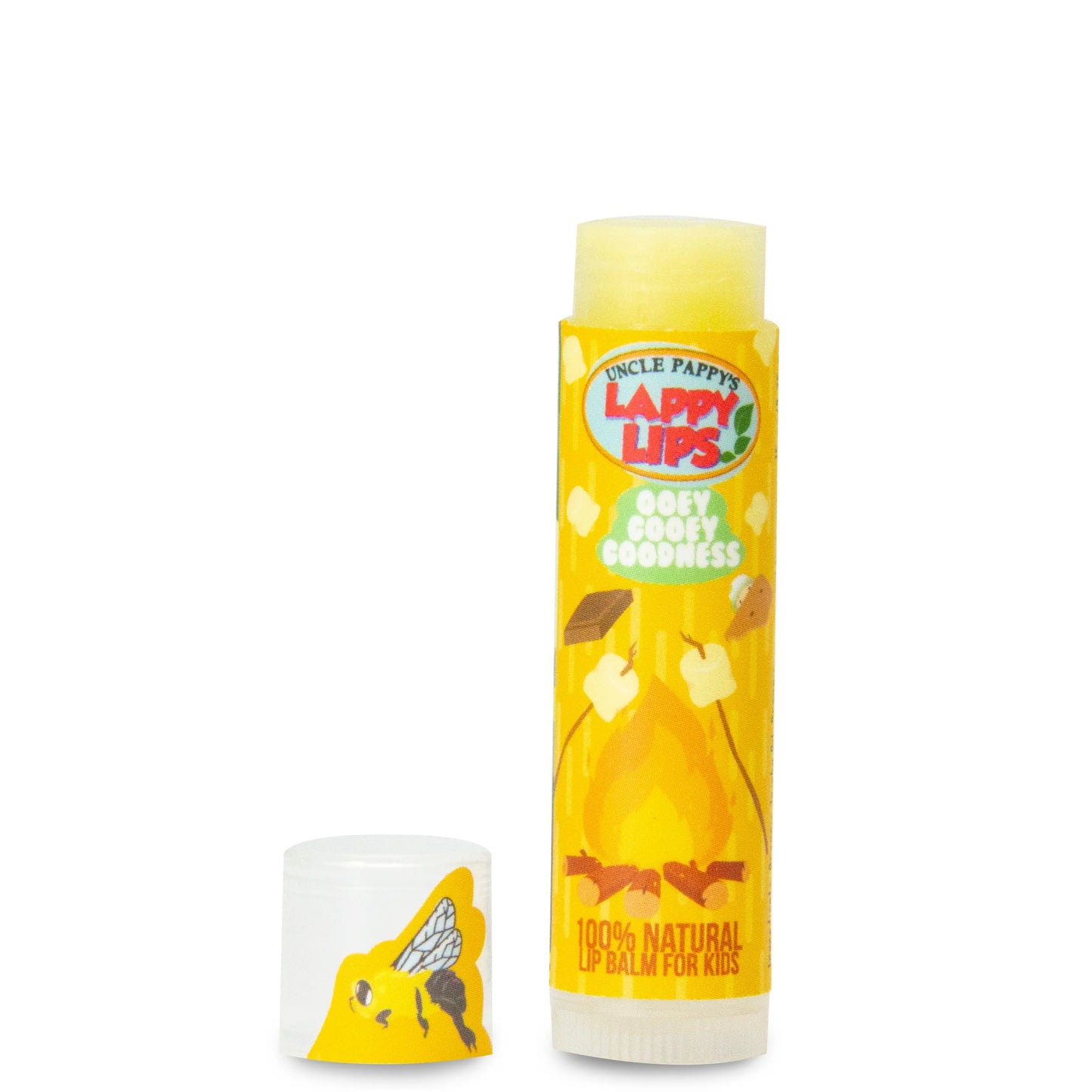
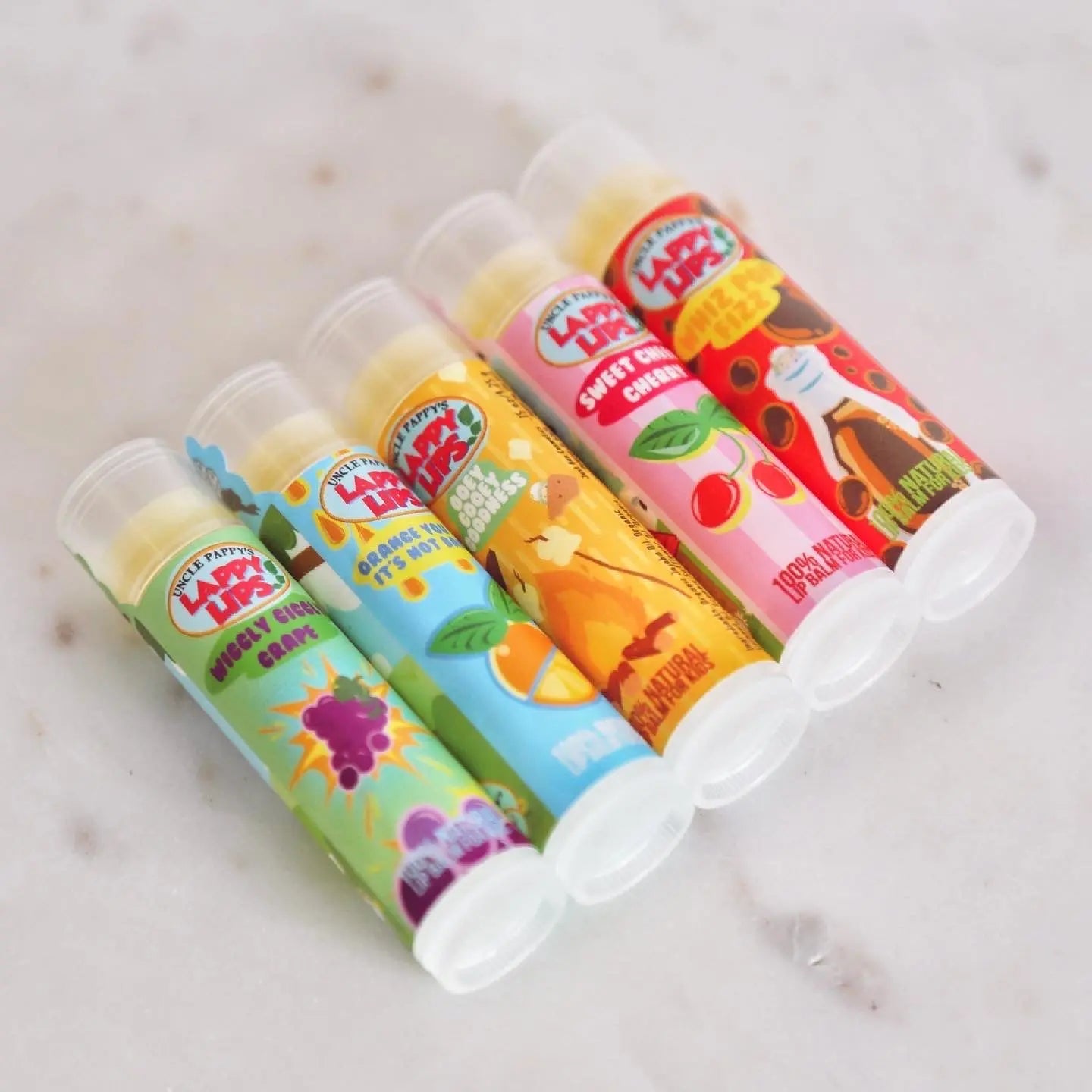

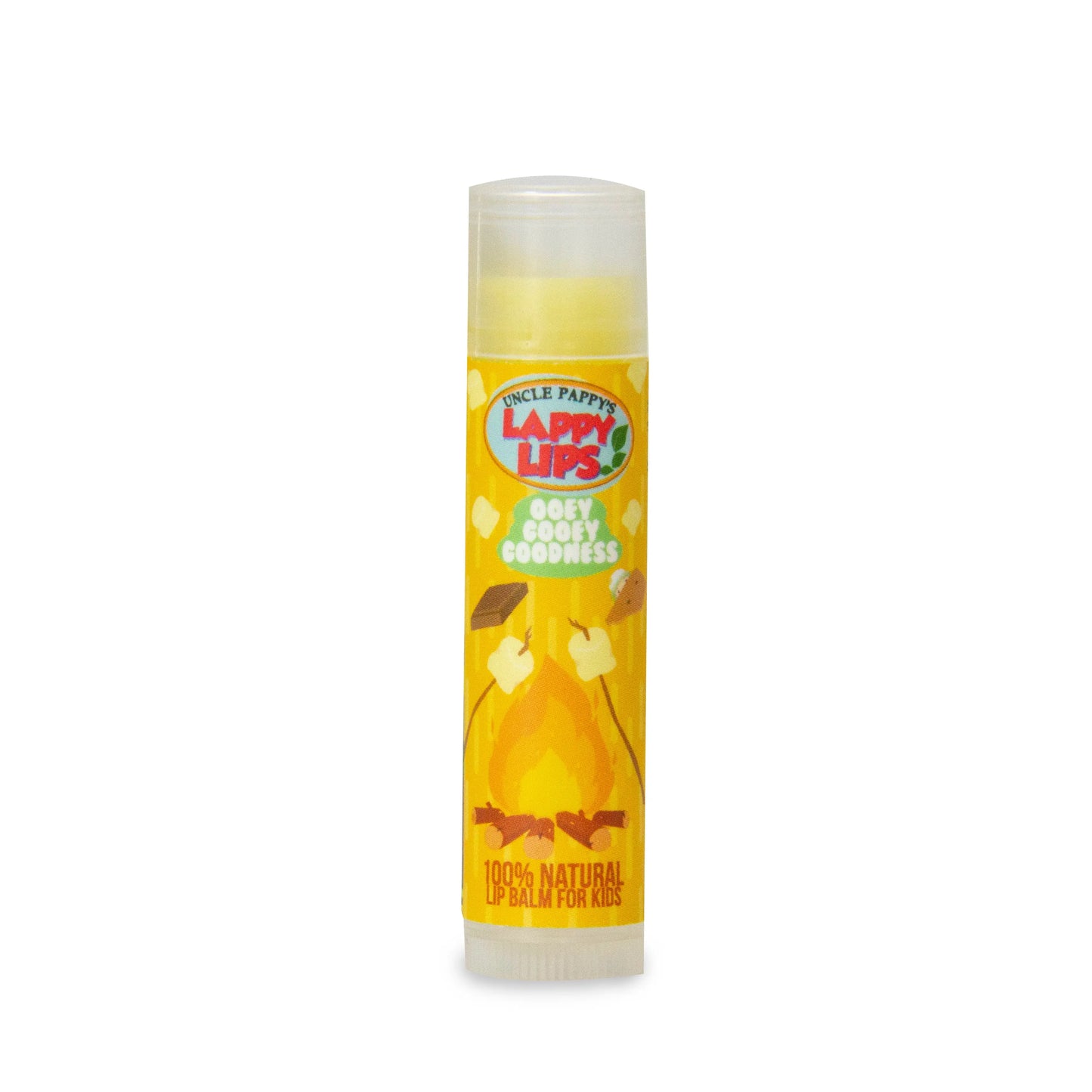
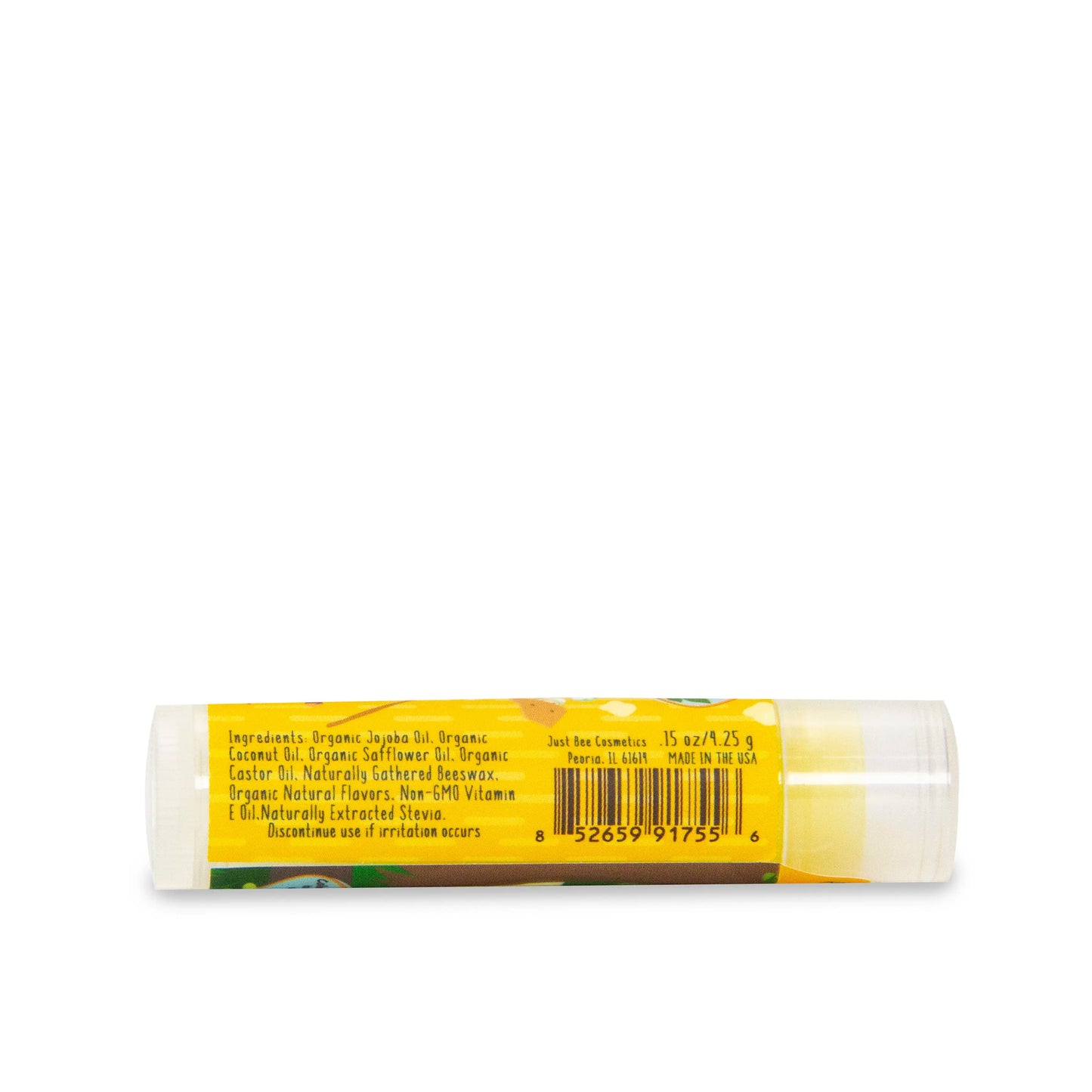
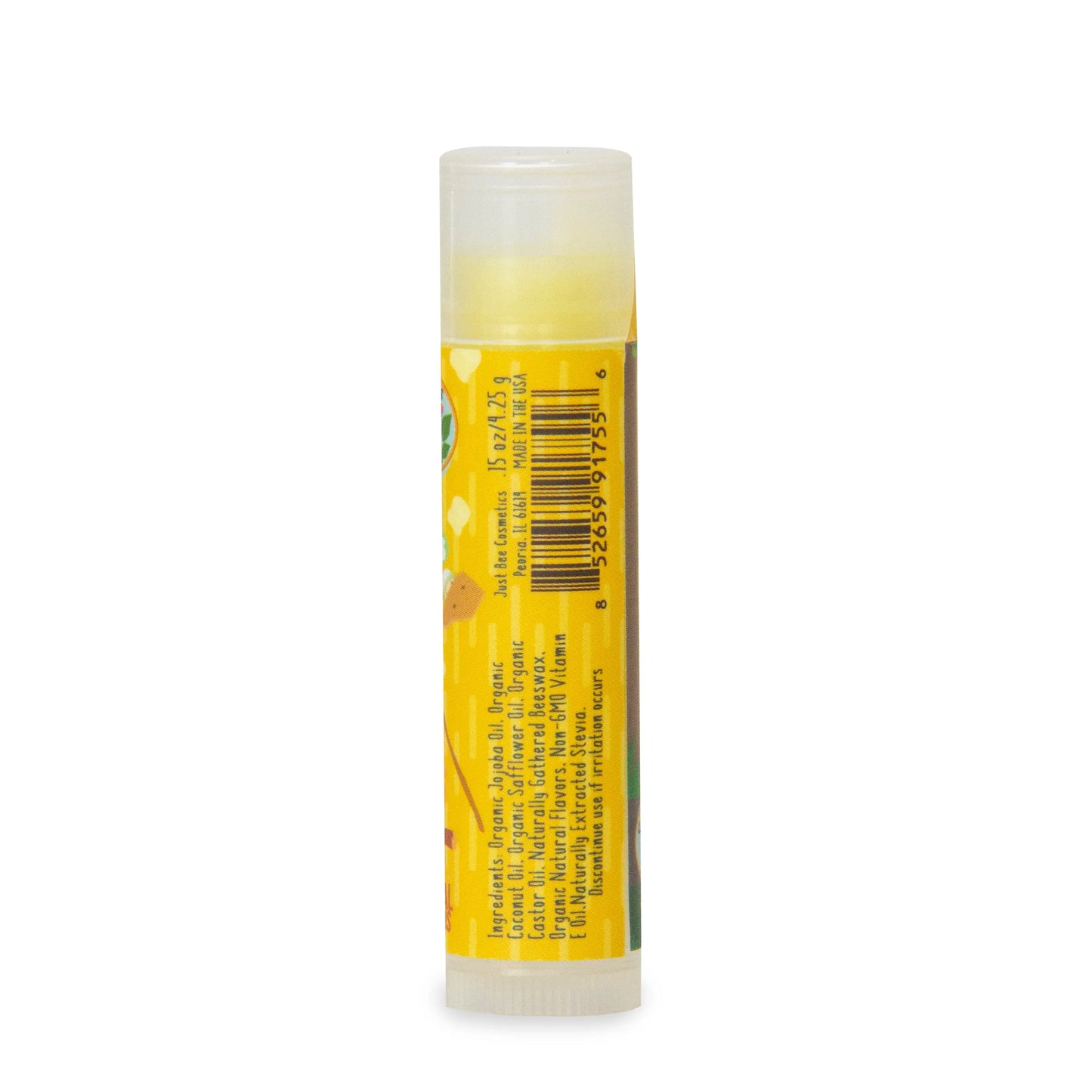

Why is Honey Such an Excellent Ingredient in Personal Care?
Bees have an enzyme in their stomachs called glucose oxidase.
When bees regurgitate nectar collected from flowers into combs to make honey, this enzyme mixes with the nectar, breaking it down into gluconic acid and hydrogen peroxide.
Because it’s so thick, rejects any kind of bacterial growth and contains hydrogen peroxide, honey creates the perfect barrier against infection on the skin and promotes healing at the same time.
-
Bee-nefits of Natural Beeswax
Beeswax naturally carries antiviral, anti-inflammatory and antibacterial properties that are essential for healing chapped skin. Beeswax forms a protective barrier that seals in moisture without clogging pores. Beeswax also contains vitamin A which is a proven nutrient known to reduce wrinkles and age spots while rehydrating and reconstructing damaged cells.
-
Why is Naturally Gathered Beeswax So Important?
When beekeepers harvest, they must make sure that their bees have enough natural honey to get them through the Winter. Unfortunately some beekeepers remove all the honey and substitute sugar water or high fructose corn syrup. This substituted food lacks the nutrients honeybees need to thrive and many of them become malnourished and die. For those that do survive, their immune systems are so compromised that they cannot survive the parasites and pathogens that they encounter in warmer months.

